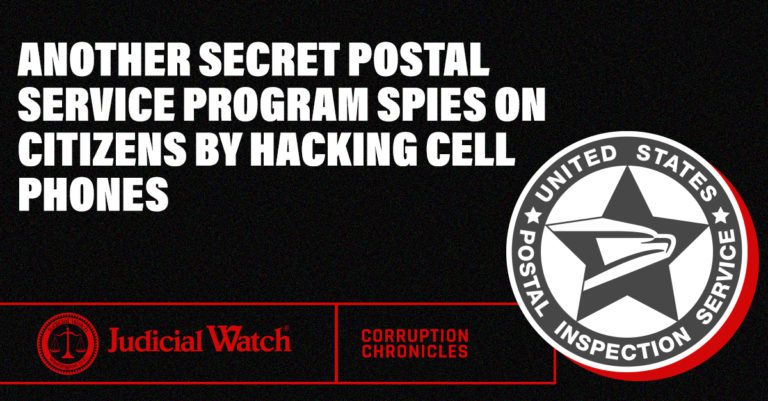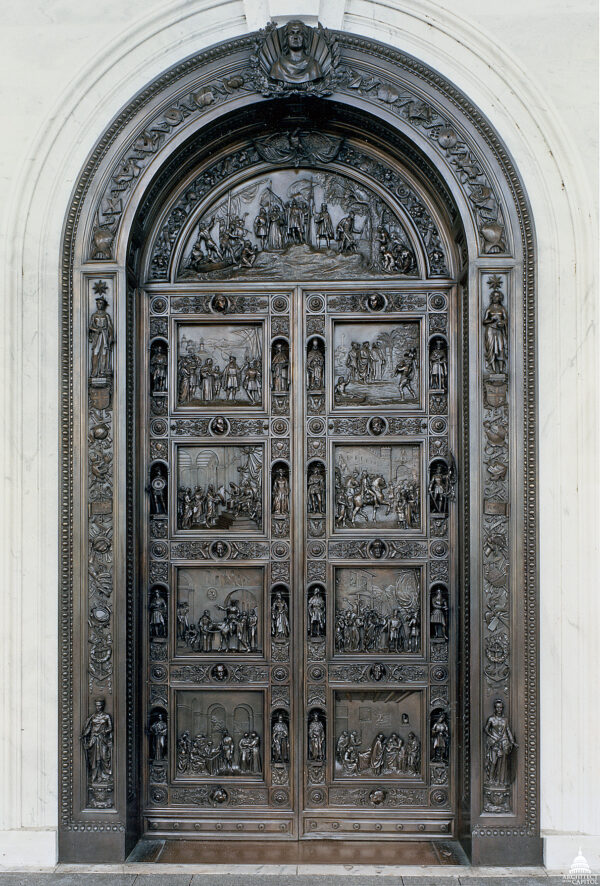 March 23, 2022 | Judicial Watch
March 23, 2022 | Judicial Watch
The NYPD’s new anti-gun units hit the streets last week and not a moment too soon. New York City is in the midst of a staggering crime wave.
Over the past weekend, 29 people were shot in 24 separate incidents, the Daily News reported. According to the latest NYPD statistics, major felonies in the city increased 58% in February 2022, in year over year comparisons to February 2021. Murders rose 10%. Felony assaults rose 22%. Rapes increased 35%. Robberies increased 56%. Hate crimes—largely against Jews and Asian-Americans—surged 189%. Crimes in the transit systems—mainly the subways—were up 73%.
New York is a city under siege. Every day brings a new horror story. A child is assaulted in Times Square. A young woman is stabbed to death in her Chinatown apartment. A senior citizen is hacked to death by a wheelchair-bound transgender two-time convicted murderer. A madman smears feces on a woman’s face in a subway station, is released on bail, and arrested again after hurling a dumbbell through a window. A woman is shoved in front of a subway train and killed. Another woman is attacked with a hammer. A teen is shot to death in front of a Brooklyn high school. A baby is shot in the face in the Bronx. A teenage cashier at a Burger King in Manhattan is shot and killed during a robbery. Two police officers are killed by gunfire in Harlem.
At Judicial Watch, we warned for years that New York was slipping toward a crisis of crime and disorder. The reasons were not difficult to discern. Progressive policy makers were denigrating and defunding the police at every opportunity, dismantling successful policing units, decriminalizing quality-of-life crimes, emptying jails, and launching a disastrous program of bail reform.
Under Mayor Bill de Blasio, New York abandoned the successful policing strategy of enforcing quality-of-life laws. This was the “Broken Windows” theory of policing, a key factor in crime reduction during the mayoral tenure of Rudy Giuliani.
“Broken Windows” is a metaphor for urban decline. The building with an unrepaired broken window soon leads to the other windows being broken and more disorderly conduct. “A neighborhood where minor offenses go unchallenged soon becomes a breeding ground for more serious criminal activity and, ultimately, violence,” write Giuliani police commissioner William Bratton and George Kelling, the father of Broken Windows theory.
New York decriminalized quality-of-life crimes under de Blasio. Public urination, public drinking, littering, and subway turnstile jumping were no longer illegal. Incidents of harassment, menacing, petty theft, public urination and public intoxication began to increase. That distant tremor in the urban air was the sound of windows breaking.
Meanwhile, progressives rammed through the state legislature in Albany a reform package that eliminated bail for a wide range of offenses—from assault, arson and child abuse to manslaughter, robbery and riot—and removed judicial discretion in holding suspects. The reform legislation took effect January 2020. Many more offenders walked. Some of them were poor first-time offenders on minor crimes who simply could not afford bail and deserved to walk; others were violent personalities or career criminals who did not. Crime rates jumped.
The public backlash was swift. In November 2021, New York elected a new mayor, a former police officer who had campaigned on a platform of public safety, Eric Adams. The new mayor’s plans include a refreshed version of the successful but controversial NYPD anti-crime unit, which was disbanded in 2020 in the midst of social justice protests. The new six-person anti-gun units, launched last week, will aggressively tackle gun crime in New York. About 170 police officers have been deployed so far, focusing on high crime areas, with 300 more to follow.
Adams also is advocating for reform of radical bail laws, tougher gun possession charges for youthful offenders, and a crackdown on transit crime with an increased police presence in the subways .
Initially stunned by the Adams electoral victory, New York’s powerful progressive factions have begun to push back hard on the new mayor. Adams’ appeal to Democratic leaders in Albany for bail reform—largely focused on giving judges more discretion to hold potentially violent offenders—was quickly shot down. Progressive politicians in New York argue that there is not a proven connection between the new bail laws and increased crime; conservatives disagree.
Adams, meanwhile, gained an important ally in the bail reform fight: New York Governor Kathy Hochul. The former lieutenant governor took over after Andrew Cuomo resigned. Last week, she sent the state legislature a “confidential” ten-point public safety plan that backed the Adams proposal to give judges more discretion in setting bail. The plan quickly leaked, infuriating the Left. Perhaps not coincidentally, Hochul will be asking the voters for a full term as governor in November.
Back in New York City, the new NYPD anti-gun teams acted quickly, making a first arrest just two hours into the first patrol—an alleged member of the Bloods crime gang with a loaded 9mm handgun. By the end of the first week, the anti-gun units had arrested thirty more suspects and taken ten illegal guns off the streets.







 Mark and Patricia McCloskey leave following a court hearing in St. Louis on Oct. 14, 2020.
Mark and Patricia McCloskey leave following a court hearing in St. Louis on Oct. 14, 2020.



